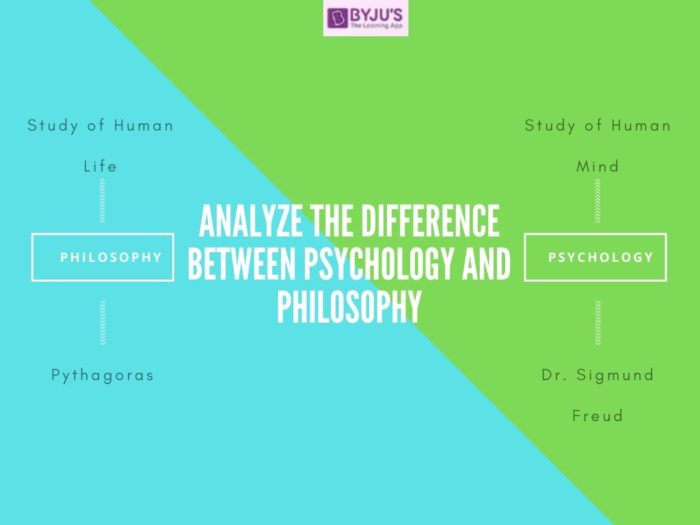There is always a general confusion between Philosophy and Psychology despite them being two different branches of knowledge
Philosophy is the study of the fundamental nature of knowledge, reality, and existence, especially when considered as an academic discipline.
Psychology deals with the study of the human mind and its behaviour in a given social context.

*Both Psychology and Philosophy are optional subjects in the UPSC Mains Exam.
This article will highlight the differences between Philosophy and Psychology while providing a thorough understanding of the two branches of knowledge.
Differences between Philosophy and Psychology
| Philosophy |
Psychology |
| Philosophy can be defined as the branch of knowledge that deals with the nature of life. A philosopher attempts to explore the various possibilities establishing the truth about the origin of the universe | Psychology is the study of the human mind and its manifestations. A psychologist will focus on understanding how the human mind functions in a given social set up |
Methods of philosophical examination include:
|
Concepts explored by psychologists include:
|
| While examining the nature of life, it is not always necessary the Philosophy will come with the correct answers. Most of it will be open to debate and will be under constant scrutiny | Psychology uses scientific methods to study the human mind. This involves formulating a hypothesis testing that results in a logical conclusion backed by physical data |
| Those who major in philosophy are employed as teachers, researchers, authors and academic speakers | Psychologists will be employed in diagnosing and treating mental health and also double up as counsellors who give advice on different issues |
The four main branches of philosophy are as follows:
|
The branches of Psychology are as follows:
|
| The term ‘philosophy’ was coined by the Greek Philosopher and Mathematician, Pythagoras ( 570 BC – 495 BC). Socrates (469 BC 0-399 BC) is considered as the father of Western Philosophy for outlining the relationship between the human body and soul. The relationship between the two has formed the basis of further philosophical studies. | Modern Psychology as we know it had its origins in the first laboratories dedicated to psychological research set up in Leipzig, Germany by Wilhelm Wundt in 1879 |
Now that there is a proper understanding of the differences between Psychology and Philosophy, aspirants can refer to the following links given below to for the study materials related to the two optional subjects of the UPSC Exams:
- Psychology Syllabus for UPSC IAS Mains
- Strategy for UPSC Psychology Optionals
- Books for UPSC Psychology
- Preparation Strategy for UPSC Philosophy Optional
- UPSC Philosophy Syllabus
- UPSC Philosophy Booklist
- Difference Between Sociology and Psychology
Difference Between Philosophy and Psychology – Download PDF Here
FAQ about Philosophy and Psychology
How to prepare philosophy optional for UPSC exam?
What are the pros and cons of choosing psychology as an optional subject?
To know more about the pros and cons of choosing psychology optional, click here.
Aspirants can become familiar with the general pattern of the IAS exam by visiting the IAS Syllabus page. For more preparation materials they can refer to the links given in the table below:
Related Links
Comments